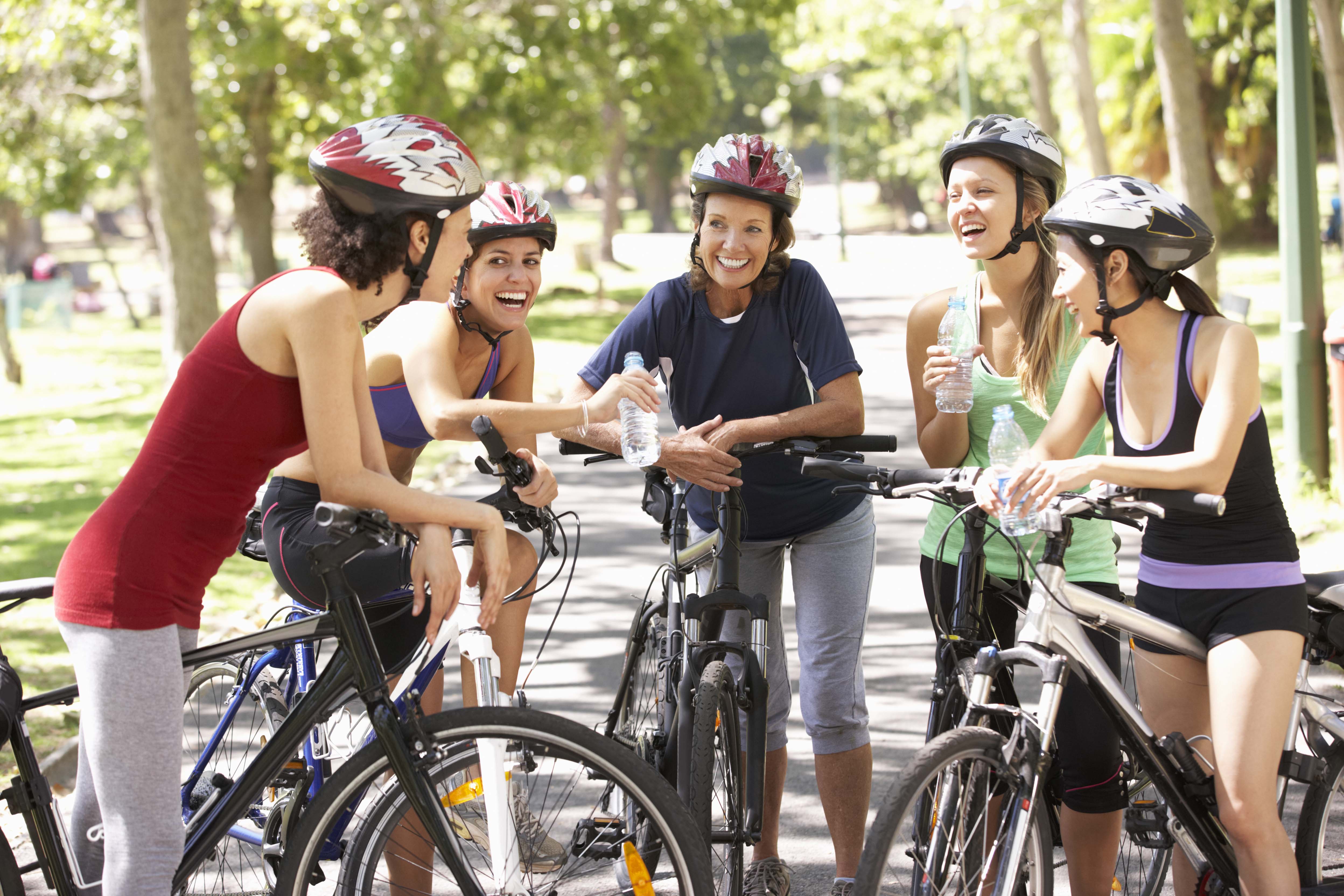
News & Blog
Home Latest News News & Blog Commuting by Bike. Stop Driving, Start Cycling! - A Falco Guide

Stop Driving. Start Cycling. Reasons to hit two wheels on your daily commute!
The benefits of cycling are almost as endless as the country lanes you could soon be exploring! It’s no myth that Cyclists can fulfil longer lives, boast more energy, enhanced health, reduced costs whilst having extra fun. Like any form of exercise, cycling is associated with a myriad of benefits that will greatly enhance your health and fitness.
Here’s an article with some compelling stats, explaining why you should hang up the car keys and unhook that bike from the garage wall!
1. Cycling is fun
Since the bicycle was first invented over 200 years ago, cycling has become an important way of life for individuals around the world. Whether that’s a child at a local skate park, a teenager on a paper round, families exploring a disused railway line or commuters travelling to work, the bicycle provides a sense of freedom as you feel the wind rush past, an experience no other form of transport will ever provide!
It’s official – cycling is a fun activity for everyone. Whether it’s the satisfaction of conquering a steep climb, the thrill of descending the other side, taking in stunning scenery or sampling the delightful scent of flowers or just some fresh, the bicycle is in a league of its own.
2. Cycling is good for physical and mental health
Millions of working days are lost each year as a result of conditions such as stress and anxiety and the personal cost is even greater. It’s an issue that every employer has a moral obligation to take seriously.
Research has shown that incorporating cycling into your daily routine is not only beneficial for your body, but also your brain! If you have ever cycled to work and noticed that your mood and mental capabilities felt better than normal, you were actually experiencing the proven benefits of cycling on mental health.
Technology plays an important role in our lives. Let’s face it – technology is everywhere - but at the same time, studies have proved that spending an excessive amount of time staring at smartphones and laptops can have a detrimental effect on our health. Therefore, it’s crucial to find a balance and allow the mind to switch off, something that the bicycle provides considerable help with! It’s too dangerous to tap away on a smartphone or laptop whilst riding a bike, therefore cycling forces us to switch off, unwind and enjoy the beautiful surroundings you just don’t experience in a car!
In addition to mental health, cycling is just as good at promoting our physical health as well.
According to the British Heart Foundation, around 10,000 fatal heart attacks could be avoided each year if people kept themselves fitter.
While the exact calories burned on a ride varies between person to person, their speed, and the topography, cycling on average burns as many calories as jogging, with considerably fewer negative impacts on the joints.
In fact, cycling is so good for us it can help to keep a number of serious health issues at bay including; strokes, heart problems, some cancers, depression, diabetes, obesity and arthritis!
When it comes to weight loss, cycling is an exceptional activity to take up. The general rule of thumb when it comes to calories is ‘calories out must exceed calories in’. So you need to burn more calories than you actually consume in order to lose weight.
As with any sport, the actual amount of calories burnt is dependent upon a number of factors including the distance, speed, intensity cycled and rider weight. But the average person can expect to burn somewhere around 400 to 1,000 calories per hour of cycling!
A study by the YMCA has revealed what every cyclist knows already: that exercise makes you happier, with people with a physically active lifestyle having a wellbeing score that is 32 per cent higher than those with inactive lifestyles.
3. Cycling Improves Productivity
The method in which an employee chooses to commute can influence their well-being and performance at work.
Employees who cycle to work are more likely to be on time, perform better, concentrate more and feel less stressed compared to their inactive counterparts.
According to Cycling UK, just one bout of moderate intensity aerobic exercise for as little as 30 minutes has been found to improve some aspects of cognition, including your memory, reasoning and ability to plan – including shortening the time it takes to complete tasks.
Being outdoors is undoubtedly more appealing than being stuck on a crowded bus or train or sitting in the middle of road works. This makes cycling a great way to feel more alert at the beginning of the day and the aerobic activity helps you clear your mind at the end of a busy day.
The average UK distance of commuting to work by bike is just four miles and research shows a bike can travel twice as fast as a car in traffic. It’s easy to see why a bike can easily rival a vehicle particularly urban areas, where vehicles transporting from one area to the next can take a significant amount of time, even when the length of the journey is short.

4. Cycling Saves Money
According to the RAC, the annual cost of car ownership in the UK is around £5,869, the lion’s share of which is down to fuel. So it’s easy to see why a bicycle provides a financial benefit. With no road tax, annual MOT, expensive tyres, fuel to purchase, or parking tickets to buy, the bicycle is a seriously cheap way to travel. We are not saying the bicycle doesn’t have its own associated costs, but it is a far less complex transport option which is inexpensive to buy and maintain, making both buying and running costs miniscule in comparison to car ownership.
It’s even important to bear in mind that whilst cycling more and driving less, the actual wear and tear on a car (including tyres, breaks, oil and screen-wash) is also reduced!
Furthermore, whilst opting to cycle more and drive less, the number of annual miles driven per year will be greatly reduced. This could have a positive effect on your motor insurance as insurance rates are calculated partly, based on the number of miles driven per year.
Cycling is a great form of aerobic exercise that can be undertaken as many times a week as desired. Therefore, with free exercise available on everybody’s doorstep, gym memberships do not necessarily need to be taken, potentially saving anything between £20 and £70 per month! Cycling is totally low cost leisure!
5. Cycling is good for the planet
When people go cycling, they can easily reduce the amount of pollution they are responsible for, their ‘carbon footprint’. When they go out cycling, they encourage other people to do the same and they can also live a healthier lifestyle. If more and more people cycled, then this would easily reduce carbon emissions across the planet.
According to Bike Radar, it takes around five percent of the materials and energy used to make a car in order to manufacture a bike and cycling produces zero pollution thereafter. Switching to a bike isn’t just a small environment improvement, it’s actually a gigantic environmental improvement!
With nearly a quarter of the UK’s CO2 emissions now coming from road transport, it’s no surprise that leaving your car at home is going to help pollution both locally and globally.
Leaving your car at home for just one day even, is one car less on the road. If a large proportion of the community did the same, there could be a significant reduction of traffic within the local area. This is just one of the ways in which we can all do our bit to reduce congestion and improve air quality!
6. Cycling is Good for the Economy
The economic benefits of building cycle parking infrastructure cannot be overstated. Cycling means business. An overview of all the benefits towns and cities can expect from investing in bicycle and cycle paths is provided below:
Cyclists are better for the local and national economy than motorists. Cyclists are more likely to stop and shop, benefiting local retailers.
People who ride bikes, buy bikes! This creates bicycle shops and cycle repair stores where people are employed. In 2018, an estimated 2.5m bicycles were sold in the UK, that's a huge economic contribution which is still expected to grow year on year! In addition to bikes, cyclists also buy additional cycle gear, such as flasks, mud guards, lights, helmets and cycle maintenance equipment.
People who cycle are more likely to make repeat trips to their local shops.
Cyclists increase tourism. This has a positive effect upon local hospitality, restaurants, bars and tourist attractions. In addition, cycling creates events, which in return, brings people into the town and increases local shopping.
Cycling creates more car parking spaces. The more people that cycle, the less demand for car parking - allowing more availability for people that actually need them.
7. The benefits of being a cycle-friendly employer
Becoming a cycle friendly employer makes sense. Integrating the ability for large numbers of employees to cycle to work promotes sustainable transport and improves corporate social responsibility.
The key benefits also include; enhanced employee health and wellbeing, improved employee retention, concentration and motivation, more punctual time keeping and reduced pressure on providing car parking spaces.
Providing employees with appropriate cycle parking and associated facilities is a fundamental part of integrating cycling into any business. Employees cannot be expected to cycle in large numbers if the infrastructure is not located within the workplace to begin with.
Steps that a business can take to promote cycling are of course different from company to company as many factors come into play including; the size of the workforce, the number of sites in operation, the distance from a local town or city and the different shift patterns a business may operate.
The following issues should be considered:
1. Is there appropriate cycle parking to begin with? Afterall employees need something to fix their cycle to when arriving at work! Consider the type of cycle parking system currently used (if applicable). Does it meet the needs of the current workforce? If mass cycle parking is required, a two-tier system may be more appropriate should the space envelope suit. If just a few spaces are required a traditional cycle stand or rack can be used. Even more importantly, whatever cycle parking is used it should be universal for all types of bikes, from mountain bikes to hybrid, road and e-bikes!
2. Is the cycle parking sheltered? There is nothing more frustrating than finishing a long shift to return to a soaking wet bike! Cycle racks and stands can easily be situated within a purpose-built cycle shelter, canopy or cycle hub to ensure they remain dry.
3. Is the cycle parking area accessible for all? Large company sites often locate employees at different areas. Cycle parking should be accessible for all employees regardless of where they are located. It may be more appropriate to locate different areas of a site with secure cycle parking so it is accessible for the entire workforce. All cycle parking facilities should remain open and accessible for employees who may operate different shift patterns.
4. Is the workforce aware of any cycle parking available? It may sound obvious, but employees working for large organisations with numerous buildings, floors and rooms may not be aware that cycle parking is available.
5. Is appropriate signage in place? Employees may know where to park a bike, but visitors and members of the public may not. Why not add appropriate signage so everyone arriving at the site knows which direction to head in! Further still, a large ‘Cycle Hub’ sign could be fitted at the entrance to the area and powder coating any steelwork in an attractive RAL colour can promote the facility.
6. Is the cycle parking area well maintained? A cycle parking area should be clean, well-organised and free from defects. Old cycle parking may need to be replaced if it doesn’t meet current standards.
7. Could you provide additional facilities? Of course, this depends upon how large the workforce is. But why not provide cyclists with a range of facilities such as a robust cycle pump, repair and maintenance station, vending machines, benches, helmet lockers, information boards, e-bike charging facility, leaflets, showers and changing rooms. These extra facilities can be really used to show the intentions of the employer and promote cycling as a serious way to commute to work!
Furthermore, the use of advanced cycle parking equipment such as a Cycle Counter or electronic signage to advertise the amount of spaces available can be used to promote and facilitate the experience of parking a bike.
Falco can provide all employers, organisations and charities with free comprehensive site-specific advice on all things cycle parking. Whether you are looking at providing a small number of cycle spaces or cycle parking on a greater scale, Falco provide free UK-wide site surveys to help organisations implement their cycle parking scheme. In addition, Falco provide free CAD design using dynamic AutoCAD blocks, free rendering graphics to help visualise a scheme and free presentations on the latest trends in cycle parking.
For more information about how Falco can assist your cycle parking scheme, please contact our helpful sales team on 01538 380080.
Our customer services team are on hand to offer product guidance and technical support.
Subscribe to our Monthly ‘e-News’ Newsletter: Stay up to date with new product releases, company news and special offers by subscribing to our monthly ‘e-News’ newsletter.

